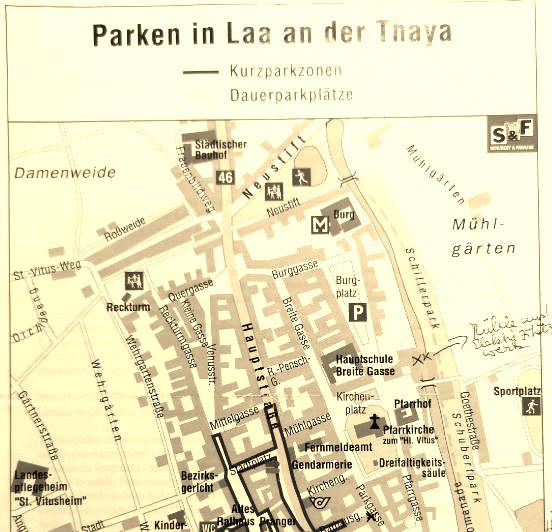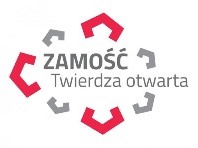FRANCISZEK DUDA was born on February 10, 1944 in Laa an der thaya in Austria, where his parents were forced to work. They ended up there as a result of the pacification of their native village, Górecko Kościelne, in June 1943 (Mr. Franciszek's mother was two months pregnant).
Mr. Franciszek knows the history of his family very well. Although he was not an eyewitness to many war events (he was in the mother's womb, and later only an infant), he uses the pronoun WE - identifying himself with his family and facts.
Before the war, the Duda family was associated with the Zamoyski family entail. Mr. Franciszek's grandfather was a carpenter in the Zamoyski estate, and grandmother was the priest's housekeeper. They were doing very well. Their son, Józef (father of Mr. Franciszek), became a gamekeeper in the entail's forests. In 1927 he got married and had four children, born in 1932, 1936, 1938 and 1941. Mr. Franciszek was the fifth.
In September 1939, Mr. Franciszek's father took part in the September Campaign. He fought at Iłża. He was taken prisoner and later he escaped. He returned to Górecko in October. When partisan units were created in the area, he joined the Home Army.
In June 1943, the village was pacified and the whole family - parents and four children - were taken prisoner. They were transported first to Brzeziny, then to Krasnobród and Zwierzyniec. They stayed for 2 weeks in a transit camp in Zamość. They were sent from Zamość to Lublin, and then to the concentration camp at Majdanek, where they miraculously escaped death.
From Lublin, they were transported by cattle wagons to Austria, to Vienna. There they came to a 'decent German' who owned a mill in Laa an.
In the winter of 1944, Mr. Franciszek was born. They stayed there until the spring of 1945.
Exactly on April 20, the Nazis took the foreigners working in the mill to the concentration camp in Mauthausen. And there the family miraculously escaped extermination... The camp was liberated by the Russians and Americans.
Duda family returned from Mauthausen to Laa an, to the mill. The owner of the mill, Gunter Hoffman, asked them to stay, but they decided to return to Poland. They got a carriage, two horses from the army and in such a transport, after almost 2 months of a very dangerous journey, they returned to Górecko...
Mr. Franciszek knows the history of his family very well. Although he was not an eyewitness to many war events (he was in the mother's womb, and later only an infant), he uses the pronoun WE - identifying himself with his family and facts.
Before the war, the Duda family was associated with the Zamoyski family entail. Mr. Franciszek's grandfather was a carpenter in the Zamoyski estate, and grandmother was the priest's housekeeper. They were doing very well. Their son, Józef (father of Mr. Franciszek), became a gamekeeper in the entail's forests. In 1927 he got married and had four children, born in 1932, 1936, 1938 and 1941. Mr. Franciszek was the fifth.
In September 1939, Mr. Franciszek's father took part in the September Campaign. He fought at Iłża. He was taken prisoner and later he escaped. He returned to Górecko in October. When partisan units were created in the area, he joined the Home Army.
In June 1943, the village was pacified and the whole family - parents and four children - were taken prisoner. They were transported first to Brzeziny, then to Krasnobród and Zwierzyniec. They stayed for 2 weeks in a transit camp in Zamość. They were sent from Zamość to Lublin, and then to the concentration camp at Majdanek, where they miraculously escaped death.
From Lublin, they were transported by cattle wagons to Austria, to Vienna. There they came to a 'decent German' who owned a mill in Laa an.
In the winter of 1944, Mr. Franciszek was born. They stayed there until the spring of 1945.
Exactly on April 20, the Nazis took the foreigners working in the mill to the concentration camp in Mauthausen. And there the family miraculously escaped extermination... The camp was liberated by the Russians and Americans.
Duda family returned from Mauthausen to Laa an, to the mill. The owner of the mill, Gunter Hoffman, asked them to stay, but they decided to return to Poland. They got a carriage, two horses from the army and in such a transport, after almost 2 months of a very dangerous journey, they returned to Górecko...
HISTORICAL FACTS IMPORTANT FOR BIOGRAPHY:
1. Entail is an undivided property inherited by the eldest descendant of the family.
2. Zamoyski family entail – one of the first magnate entails in the Republic of Poland, established by Jan Sariusz Zamoyski and approved by the Sejm Act of July 8, 1589. It was liquidated after World War II as part of the land reform. The last ortynat (estate's owner), for whom Mr. Franciszek's grandfather worked, was Jan Zamoyski. During the September Campaign, ortynat was the commander of the squadron fighting at Iłża.
3. Górecko Kościelne – a village in Roztocze region. In September 1939, heavy fights between the Polish and German troops took place here. In June 1943, the villagers were displaced and the Germans brought the Ukrainian population here. However, fearing the Polish partisans, they left after a few days. Two other pacifications were also unsuccessful.
4. German resettlement camps in Zwierzyniec and Zamość – these were initially temporary camps for forced laborers, then resettlement camps for the pacified and displaced people of the Zamojskie region and the Children of the Zamojskie Region.
5. KL Majdanek – Nazi German concentration and prisoner-of-war camp in Lublin, operating in the years 1941-1944. Nearly 80,000 people of different nationalities died there.
6. KL Mauthausen – the Nazi German camp was established in August 1938 near the largest Austrian granite quarry (Wiener Graben) in the town of Mauthausen. It served as a place of isolation and torment of mainly German and Austrian socialists, communists, homosexuals and Polish intelligentsia. It was the first German concentration camp established outside the Third Reich.
1. Entail is an undivided property inherited by the eldest descendant of the family.
2. Zamoyski family entail – one of the first magnate entails in the Republic of Poland, established by Jan Sariusz Zamoyski and approved by the Sejm Act of July 8, 1589. It was liquidated after World War II as part of the land reform. The last ortynat (estate's owner), for whom Mr. Franciszek's grandfather worked, was Jan Zamoyski. During the September Campaign, ortynat was the commander of the squadron fighting at Iłża.
3. Górecko Kościelne – a village in Roztocze region. In September 1939, heavy fights between the Polish and German troops took place here. In June 1943, the villagers were displaced and the Germans brought the Ukrainian population here. However, fearing the Polish partisans, they left after a few days. Two other pacifications were also unsuccessful.
4. German resettlement camps in Zwierzyniec and Zamość – these were initially temporary camps for forced laborers, then resettlement camps for the pacified and displaced people of the Zamojskie region and the Children of the Zamojskie Region.
5. KL Majdanek – Nazi German concentration and prisoner-of-war camp in Lublin, operating in the years 1941-1944. Nearly 80,000 people of different nationalities died there.
6. KL Mauthausen – the Nazi German camp was established in August 1938 near the largest Austrian granite quarry (Wiener Graben) in the town of Mauthausen. It served as a place of isolation and torment of mainly German and Austrian socialists, communists, homosexuals and Polish intelligentsia. It was the first German concentration camp established outside the Third Reich.














